Official Claims Russian Aircraft Being Repaired In Iran
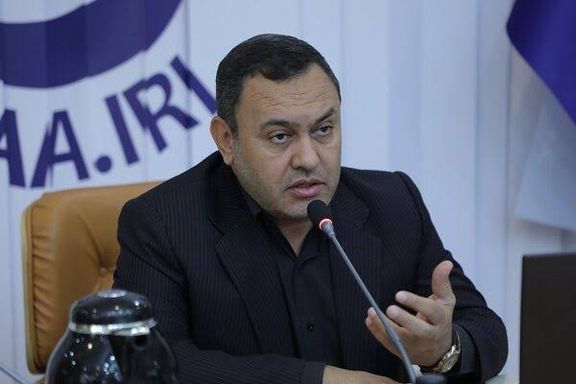
The head of Iran civil aviation organization says the Islamic Republic and Russia have singed an agreement to accept each other’s approvals in the field of repair and construction of aircraft.

The head of Iran civil aviation organization says the Islamic Republic and Russia have singed an agreement to accept each other’s approvals in the field of repair and construction of aircraft.
Mohammad Mohammadi Bakhsh told ILNA news agency on Monday that the agreement was achieved during his one-day visit to Russia last week.
While half of the air fleet of Iran is grounded because of sanctions, he claimed that the Russian aircraft are now being repaired in Iran.
“Fortunately, the grounded planes of the Iranian airlines are also being repaired, and in recent weeks, a number of them started working,” he added.
Regarding the spare parts, Mohammadi Bakhsh alleged the required parts are manufactured and produced inside the country by domestic companies; therefore, the dependence on foreign countries in this field has decreased.
Iran has suffered from shortages of civilian airliners since the 1990s and used a variety of ways to lease older planes or buy spare parts through intermediaries, but the technical state of its fleet has been deteriorating.
The 2015 nuclear agreement (JCPOA) suspended sanctions on purchases of Western aircraft and Iran began talks to buy new planes from Boeing and Airbus. A few Airbus planes were delivered but the Trump administration never approved the sale of US planes until Washington withdrew from the JCPOA in May 2018.
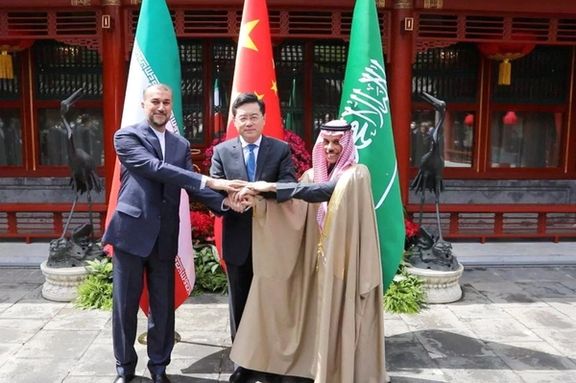
Iran’s foreign ministry spokesman Nasser Kanaani says a decision by the United States to send a submarine to the region is an attempt to cover up American decline.
The US Navy Saturday announced the deployment of a guided-missile submarine capable of carrying up to 154 Tomahawk missiles to the Middle East, in what appeared to be a show of force toward Iran following recent tensions in Syria and rocket attacks on Israel.
Nasser Kanaani tweeted Sunday that “periodic news about sending submarines, rotating warships or dispatching bombers to West Asia when new regional developments help shape a new order, and eliminate the need for extra-regional military forces, is part of the American government’s struggle to cover up the trend of its declining global power.”
Kanaani was referring to Iran’s restoration of diplomatic relations with Saudi Arabia and an apparent deal to search for peace in Yemen when he mentioned “new regional developments” and a “new order”.
Iranian regime officials and its ideological gurus have been making the most of the agreement being a US strategic defeat because Riyadh agreed to the deal with China’s tutelage, excluding Washington.
But the Saudis appear to be carefully implementing their diplomatic and security goals in restoring relations with Tehran, as it relates to pacifying Yemen. At the same time when Riyadh sent a team to Iran over the weekend to assess the technical aspects of reopening its diplomatic missions, a Saudi and Omani delegation traveled to Yemen to negotiate peace with the Houthis. After the Saudi-Iranian deal, the Yemeni rebel movement has completely changed its tone, praising regional reconciliation and speaking of an “honorable peace.”
But Iranian hardliners are praising Supreme Leader Ali Khamenei’s “wisdom” in predicting a decline of the American world order, citing the Chinese-sponsored agreement with Saudi Arabia.
The ultra-hardliner Kayhan newspaper in Tehran financed by Khamenei wrote Monday that “Iran has a special and undeniable role in the new world order” citing Israeli Prime Minister Benjamin Netanyahu who according to Kayhan told the US Congress in 2011 to be wary of Iran’s power.
Kayhan of course somewhat misquoted Netanyahu who in fact, was not talking about a new world order but warning about Iran’s nuclear program. The Israeli PM told Congress: "When I last stood here, I spoke of the consequences of Iran developing nuclear weapons. Now time is running out. The hinge of history may soon turn, for the greatest danger of all could soon be upon us.”
Kayhan retorted that since Netanyahu’s speech “Iran’s enemies headed by the United States have repeatedly tried to prevent the formation of a new world order,” and engineered several attempts to topple the Islamic Republic.
Kayhan insisted that the “resistance front” is winning in West Asia, referring to Iran’s proxies in the region. It even went as far as claiming that the war in Ukraine is a defeat for the West.
The hardliner newspaper also pointed out French President Emmanuel Macron for urging Europe to be independent of the United States on the Taiwan issue, after his recent trip to China.
All these signs, Kayhan argued show the ascendance of a new world order despite the will of the United States, United Kingdom, France Germany and “the Zionist regime”, failing to acknowledge the fact that Iran has single-handedly been the region’s most destabilizing influence in recent history, drawing multiple nations and continents into potential conflict.
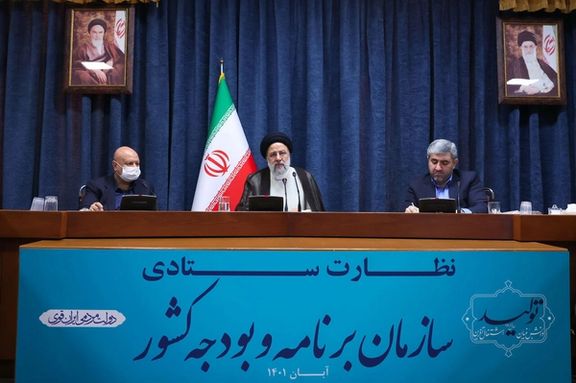
The head of Iran’s Planning and Budget Organization Masoud Mirkazemi will be replaced, Iranian media reported, as the country faces a serious economic crisis.
Fars news website affiliated with the Revolutionary Guard reported about Mirkazemi’s impending dismissal, while the central bank chief was fired in late December.
Mirkazemi this week claimed that 93 percent of the budget was fulfilled in the previous Iranian year that ended on March 20, but this was done at the expense of the people who indirectly paid as the government kept printing money and increasing the inflation rate.
Iran’s currency rial has halved in value since early September and is now trading at 500,000 to the US dollar. This immediately translates into higher consumer prices, which have seen on high, double digit annual increases since 2018 when the United States withdrew from the JCPOA nuclear deal and imposed sanctions.
Fars did not mention a reason for Mirkazemi’s possible dismissal and only said that a tax office senior official, Davoud Manzoor is his possible replacement.
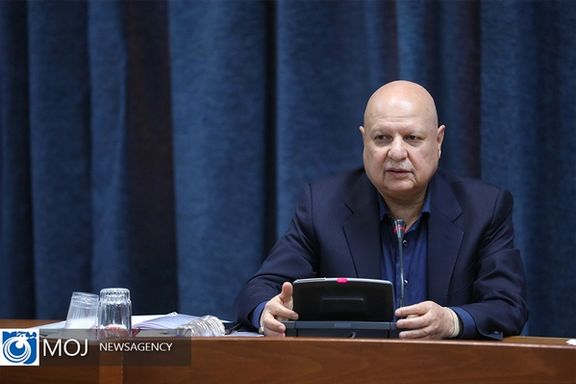
President Ebrahim Raisi’s government has been repeatedly claiming that it has lowered government borrowing from the central bank, but the effectual devaluation of the currency says otherwise.
Mirkazemi is also one of Raisi’s vice presidents and might also lose that position unless he is offered another post.
Iranian media reported in December that despite government claims, the money supply had grown by 1,000 trillion rials in seven months. Taking an average of the US dollar exchange rate in that period, the amount comes close to just $4 billion, but Iran has been printing money with an accelerated pace since the US imposed sanctions in 2018.
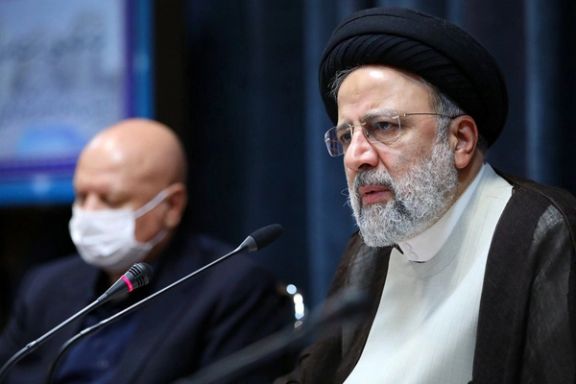
With no short-term prospect for an agreement with Washington over the nuclear program and other issues, local investors are nervous to hold on to rials and the US dollar began to reach unprecedented highs in 2023.
If Mirkazemi is fired it would be a step long demanded by a chorus of politicians and pundits who have been asking for a major overhaul of the government for more than a year. Iran’s restricted media has been echoing calls not only by the president’s opponents but also by many conservatives and allies.
So far, lawmakers who have been demanding the impeachment of some ministers have been rebuffed by parliament speaker Mohammad Bagher Ghalibaf (Qalibaf), who has tried to protect the administration, probably carrying out orders from Supreme Leader Ali Khamenei’s office.
The whole budget approval process in the parliament has remained obscure, as many among the elite believe that it is simply not realistic to expect sufficient revenues to come close to a balanced figure. Mirkazemi and others have put in the budget bill expected oil revenues of $43.3 billion, based on selling 1.4 million barrels per day for $85 per dollar – both unrealistic estimates. The annual budget cycle already started on March 21, while Iran is selling much less oil at steep discounts, probably bartering some of the exports.
Mirkazemi, an industrial engineer by training, is a conservative political operator who was minister of trade for four years and minister of oil for about two years under President Mahmoud Ahmadinejad.
Conservatives who assumed dozens of positions under Ahmadinejad are also ascendant in Raisi’s administration.
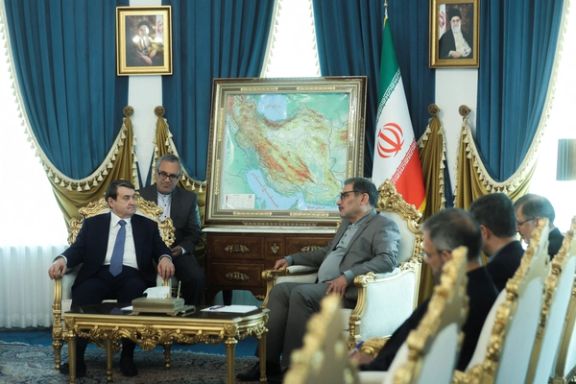
Russian President Vladimir Putin’s special assistant met Iran's Secretary of the Supreme National Security Council Ali Shamkhani in the capital Tehran.
According to Iranian state media, Russia's Igor Levitin and the Islamic Republic’s top security official discussed Moscow’s readiness to invest in Iran’s oil, petrochemicals, and steel industries.
The two reportedly also discussed ways to thwart Western sanctions through ditching the dollar in their bilateral transactions, claiming that this would weaken the US currency.
Expressing satisfaction with the volume of economic cooperation between Tehran and Moscow, Shamkhani praised "the path that started to reduce the influence of the dollar in regional and international economic exchanges."
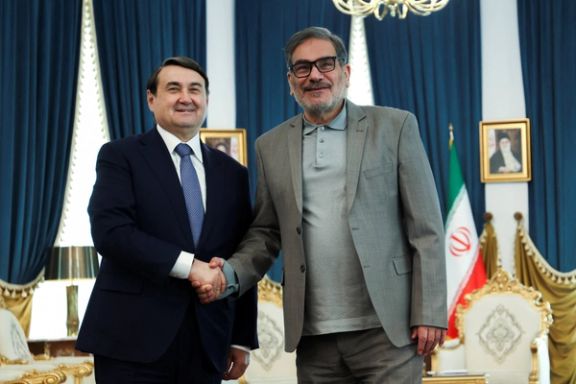
One of the points discussed was the ongoing joint project, the North-South Transport Corridor, which the Iranian official described as having a "decisive role in changing the geometry of transportation in the region."
During Levitin's visit to Iran last January, the two countries agreed that the remaining part of the North-South strategic corridor, in Iran’s northern Rasht-Astara route, will be built with the direct investment of Russia. The North-South Transport Corridor is a network for moving freight between Iran, Russia, Azerbaijan and other countries in Asia and Europe.
Tehran keeps boasting about its long-term strategic cooperation deals with Russia and China, but such deals have not yet borne any tangible results, despite several meetings among senior officials of the countries.
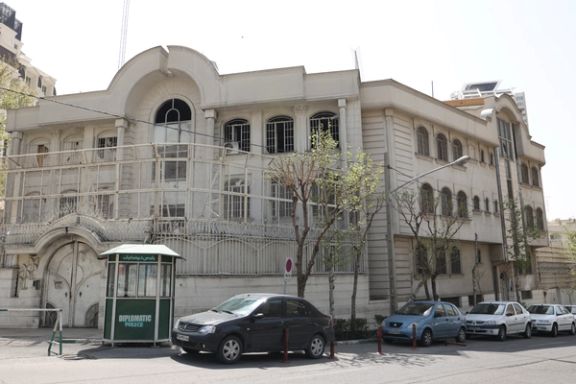
A "technical delegation" from Saudi Arabia has visited the country's embassy building in Tehran.
The semi-official ISNA news agency said the visit was made on Sunday morning, adding that an Iranian technical delegation will also visit Saudi Arabia this week to prepare for the reopening of the Islamic Republic’s embassy in Riyadh and consulate in Mashhad.
The announcement comes days after the foreign ministers of Iran and Saudi Arabia met in Beijing on Thursday for the first formal gathering of their top diplomats in more than seven years.
This is the first visit of a Saudi delegation to Iran since China brokered a deal to restore relations between the two regional powers. Relations were severed in January 2016 following attacks by Iranian mobs on Saudi diplomatic missions.
After years of hostility that fueled conflicts across the Middle East, Iran and Saudi Arabia agreed to end their diplomatic rift and reopen their diplomatic missions in March.
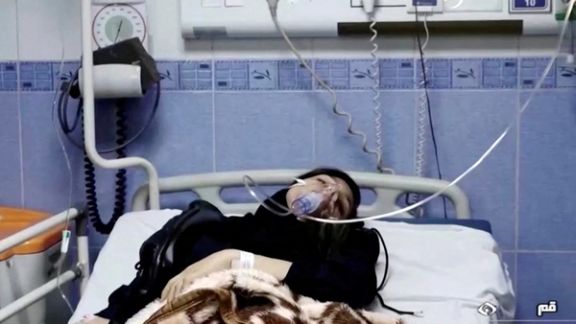
A Kurdish child from the city of Kamyaran, hospitalized after a chemical attack on a school in Tehran last month, has tragically died in hospital.
Hengaw Human Rights Organization reported Sunday that Karo Pashabadi, a 16-year-old boy living in Tehran, died three weeks after a chemical attack. The teenager was taken to hospital for treatment on March 15 after inhaling the poisonous gas used in the attack.
His body was laid to rest in Pashavah village of Kamyaran city in Kordestan Province on Saturday. At least one other child, 11-year-old Fatemeh Razaei, has died in the attacks which began on November 30 and have taken place in hundreds of schools nationwide.
Thousands of pupils have been affected, mostly girls, with hundreds more hospitalized with symptoms including respiratory distress, numbness in their limbs, heart palpitations, headaches, nausea, and vomiting.
Meanwhile, Hengaw also reported that the students of three high schools in the Kurdish city of Saqqez were poisoned and taken to medical centers on Sunday as the wave of poisonings blighting children across Iran appear to have returned after a short respite for Nowruz holidays.
Countless ordinary Iranians have been suspicious of the regime’s involvement, though the regime has denied responsibility and even staged arrests of suspects after protests against the poisonings added further fuel to the regime’s burning fire of unrest.
International reaction has demanded answers to the mystery poisonings including a spokesperson for the UN Human Rights Council in Geneva calling for a transparent investigation along with the White House, which demanded accountability for those responsible.